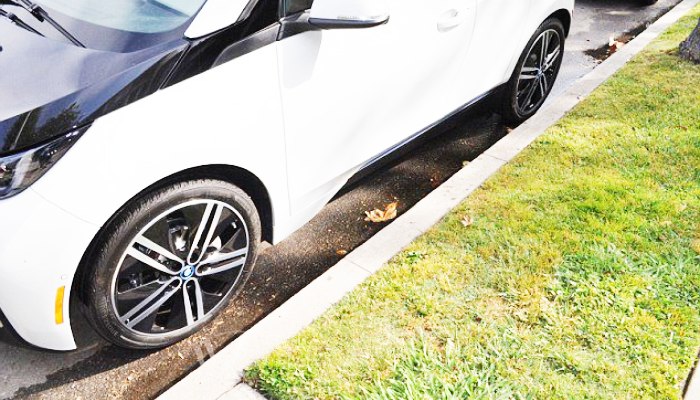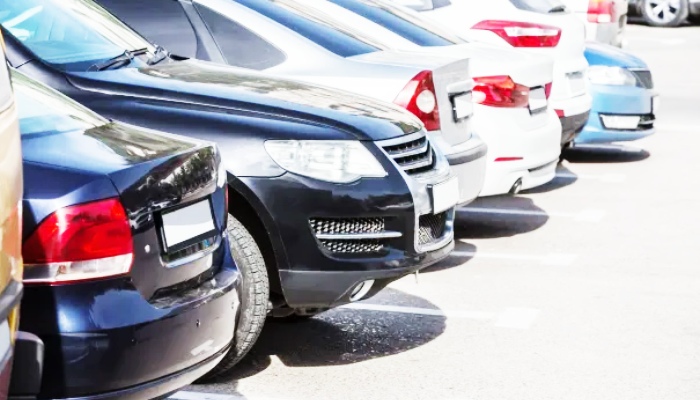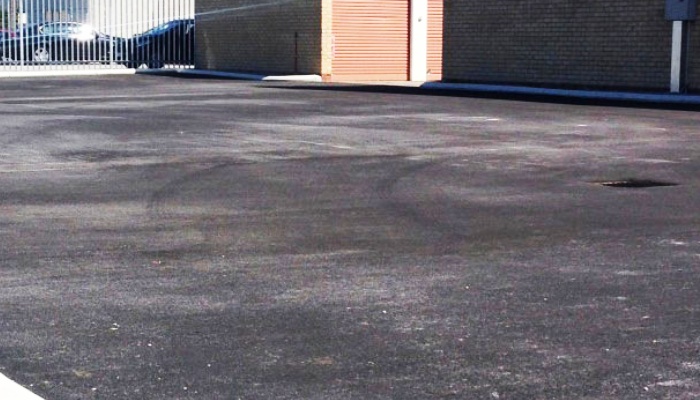
Avoiding Common Parking Mistakes Near Residential Driveways: What You Should Know
Parking near residential driveways might seem like a simple task, but it’s an area where many drivers unknowingly run into issues. Homeowners rely on their driveways for easy access to their property, and blocking or even partially obstructing them can cause significant inconvenience. It’s not just about being polite there are clear rules and guidelines in place to ensure that driveways remain accessible, and failure to comply with road rules can result in fines or, worse, your vehicle being towed.
Understanding the legal parking distance from driveways is key. In many regions, there are specific laws that dictate how far you need to park parked car from the entrance of a driveway to ensure that it’s fully accessible. These regulations vary depending on the area, but they are designed to prevent dangerous situations, such as forcing homeowners to maneuver around parked cars or blocking emergency vehicle access. Ignoring these rules doesn’t just affect the property owner; it could lead to hefty fines and unwanted hassle for the driver.
Moreover, parking your car responsibly near driveways reflects your awareness and consideration for the community. Whether you’re stopping briefly or parking for an extended period, ensuring that your vehicle is parked legally and safely avoids unnecessary friction with residents. By understanding and following the rules, you contribute to a smoother and more cooperative neighborhood environment.

Understanding Local Parking Laws and Regulations
Parking regulations vary by region, but one constant is the importance of keeping driveways clear. Knowing the specific rules in your area, such as the legal parking distance from a driveway, parking bays, or parking space, is essential to avoid penalties and ensure safe parking practices. In most places, there are clearly defined laws that prohibit parking too close to driveways or on the nature strip to maintain visibility and ease of access for property owners.
Typically, local ordinances will specify a minimum distance you must keep from a driveway, which can range from a few meters to more significant distances depending on the jurisdiction. This legal parking distance helps ensure that homeowners can safely enter and exit their property without the risk of hitting a parked vehicle or struggling with limited space. Parking too close can also obstruct visibility, creating hazardous conditions for pedestrians and drivers alike, especially for vehicles with a larger gross vehicle mass.
Additionally, it’s important to be aware of other parking regulations like parking opposite driveways or in restricted zones. Parking signs will often indicate these rules, and failing to follow them can result in parking tickets. It’s not only about keeping driveways clear but also understanding factors such as parking in the same direction as traffic, obeying permit zones, or avoiding fire hydrants. Municipalities often post signs about these restrictions, but as a driver, it’s your responsibility to be informed.
Familiarizing yourself with these parking regulations, whether it involves parking bays, nature strips, or even the proper way to park opposite a driveway, can save you from fines and potential conflicts with residents. When in doubt, a quick check with your local council or a glance at posted parking signs will help ensure you’re following all legal requirements.
Common Parking Mistakes to Avoid Near Driveways
Even the most experienced drivers can make mistakes when it comes to parking near residential driveways. These errors, although often unintentional, can lead to frustration for homeowners and penalties for the driver. One of the most common mistakes is underestimating the legal parking distance from a driveway or failing to observe designated parking zones. Many drivers assume that parking just a little closer than the law allows is harmless, but even a slight encroachment can block visibility for other vehicles or hinder access for residents.
Another frequent issue is parking too close to the edge of the driveway, especially when there’s a continuous yellow edge line marking restricted areas. While you may not be directly in front of the driveway entrance, parking on the borderline can still cause difficulties, particularly for larger vehicles like trucks or parking caravans attempting to enter or exit. Driveways need to remain clear for access by cars, delivery vehicles, and emergency services alike.
Drivers also often overlook temporary parking regulations, such as during street cleaning or construction, which can lead to fines or towing. Failing to check parking signs or ignoring a parking sign indicating “No Parking” or “Tow Away” zones near driveways is a common yet costly mistake. Lastly, in some cases, parking too close to a neighbor’s driveway can create tension within the community, even if it’s not strictly illegal. To avoid these issues, always leave ample space, double-check parking signs, and stay mindful of how your parking decisions affect those around you.

The Consequences of Improper Parking Near Driveways
Parking improperly near residential driveways can lead to several negative consequences, both for the driver and the property owner. One of the most immediate risks is receiving a fine for parking too close to a driveway or obstructing it. Most municipalities have strict regulations regarding the legal parking distance from a driveway, and violations can result in costly tickets. Repeated offenses may even lead to increased penalties or towing, which adds both inconvenience and expense.
Beyond legal repercussions, improper parking can cause significant frustration for homeowners. Blocking or partially obstructing a driveway can make it difficult, if not impossible, for residents to enter or exit their property. This becomes especially problematic in emergencies, where quick access to the driveway is crucial. Additionally, delivery vehicles or services such as garbage collection may be hindered by parallel parking, causing further complications for the property owner.
Improper parking can also create safety hazards. Blocking driveways reduces visibility for both pedestrians and drivers, increasing the likelihood of accidents. This is particularly dangerous for children playing nearby or for residents trying to navigate in and out of their property. In the worst-case scenario, emergency vehicles may be delayed if they cannot access the driveway quickly, putting lives and property at risk.
In addition to these practical and legal consequences of car park, parking violations can strain relationships with neighbors. Continuously parking too close to driveways may lead to tensions within the community, as it signals a lack of consideration for others. To avoid these outcomes, it’s essential to always follow local parking laws and remain mindful of how your vehicle’s position impacts others.
Tips for Safe and Legal Parking Near Residential Driveways
Parking safely and legally near residential driveways requires more than just common sense it involves being aware of specific local regulations and taking a few simple precautions. Here are some essential tips to ensure that you’re following the rules and respecting the space of homeowners:
- Know the Legal Parking Distance from a Driveway: Every area has specific rules on how close you can park to a driveway. Be sure to familiarize yourself with the local regulations, which typically require you to leave a certain amount of space (often several meters) between your car and the driveway entrance. This ensures that homeowners can easily enter and exit without obstruction.
- Look for Marked Zones and Signs: In many neighborhoods, you’ll find marked zones or signs that indicate where parking is prohibited. Keep an eye out for “No Parking” signs, painted curbs, or other indicators near driveways. These are placed to protect driveway access and visibility for both pedestrians and drivers.
- Allow Ample Space for Larger Vehicles: Even if you believe you’re not blocking a driveway, consider the size of the vehicles that might need access. Larger vehicles, such as SUVs, trucks, or emergency services, require more room to maneuver, so it’s wise to leave extra space around driveways to accommodate them.
- Avoid Temporary Parking Restrictions: Be mindful of temporary parking rules, such as during street cleaning, snow removal, or construction. Even if it’s just for a few hours or days, parking in these restricted zones near driveways can lead to fines or towing.
- Double-Check Your Parking Position: Before leaving your vehicle, always check to ensure you’re not encroaching on a driveway or any marked boundary. A quick glance can save you from potential fines and the irritation of blocking someone’s property.
- Respect Your Neighbors: While it may not always be illegal, parking too close to a neighbor’s driveway can create unnecessary tension. Being mindful of their access needs and leaving adequate space reflects courtesy and helps maintain good relations in the community.
By following these simple tips, you’ll not only avoid the penalties associated with illegal parking but also contribute to a safer, more respectful neighborhood.

Conclusion: Parking Responsibly for a Better Community
Parking near residential driveways might seem like a minor consideration, but it plays a significant role in maintaining harmony within a neighborhood. Understanding and respecting the legal parking distance from driveways ensures that you avoid fines, prevent access issues for homeowners, and contribute to safer streets for everyone. By staying informed about local regulations, paying attention to parking signs, and always double-checking your vehicle’s position, you demonstrate consideration for both the law and your neighbors.
Ultimately, responsible parking is about more than just avoiding penalties it’s about fostering a sense of community and mutual respect. When everyone follows the rules and parks thoughtfully, neighborhoods function more smoothly, and tensions over parking disputes are minimized. So next time you park near a driveway, take a moment to ensure you’re doing so safely and legally. Your efforts will make a positive impact on the local environment, helping to make traffic lights create a more pleasant, cooperative place for all residents.
This article is of a general nature and is intended for information only. It should not be relied upon as legal advice. If you require further information, advice or assistance for your specific circumstance, please contact us at Bouchier Khan Lawyers.
